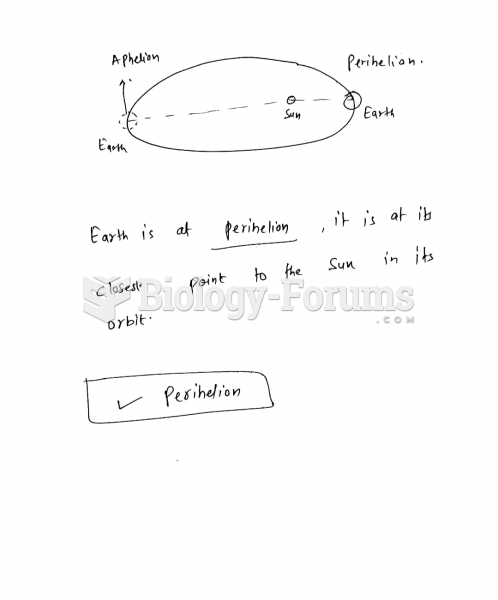|
|
|
The average office desk has 400 times more bacteria on it than a toilet.
Acute bronchitis is an inflammation of the breathing tubes (bronchi), which causes increased mucus production and other changes. It is usually caused by bacteria or viruses, can be serious in people who have pulmonary or cardiac diseases, and can lead to pneumonia.
Opium has influenced much of the world's most popular literature. The following authors were all opium users, of varying degrees: Lewis Carroll, Charles, Dickens, Arthur Conan Doyle, and Oscar Wilde.
Tobacco depletes the body of vitamins A, C, and E, which can result in any of the following: dry hair, dry skin, dry eyes, poor growth, night blindness, abscesses, insomnia, fatigue, reproductive system problems, sinusitis, pneumonia, frequent respiratory problems, skin disorders, weight loss, rickets, osteomalacia, nervousness, muscle spasms, leg cramps, extremity numbness, bone malformations, decayed teeth, difficulty in walking, irritability, restlessness, profuse sweating, increased uric acid (gout), joint damage, damaged red blood cells, destruction of nerves, infertility, miscarriage, and many types of cancer.
The first monoclonal antibodies were made exclusively from mouse cells. Some are now fully human, which means they are likely to be safer and may be more effective than older monoclonal antibodies.
 Middle adulthood can bring large-scale changes in lifestyle and interests, as illustrated by this ph
Middle adulthood can bring large-scale changes in lifestyle and interests, as illustrated by this ph
 Apply effleurage to forehead with thumbs. Stroke from middle of forehead to the temples. Begin just ...
Apply effleurage to forehead with thumbs. Stroke from middle of forehead to the temples. Begin just ...
 (A) Thumb presses between shoulder blades on inner and outer bladder meridian acupoints. (B) Apply ...
(A) Thumb presses between shoulder blades on inner and outer bladder meridian acupoints. (B) Apply ...




